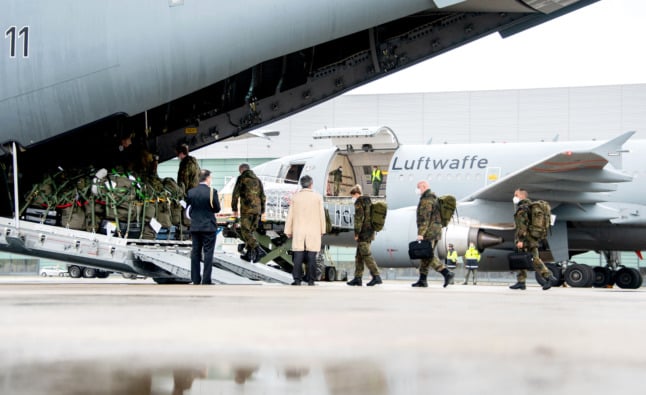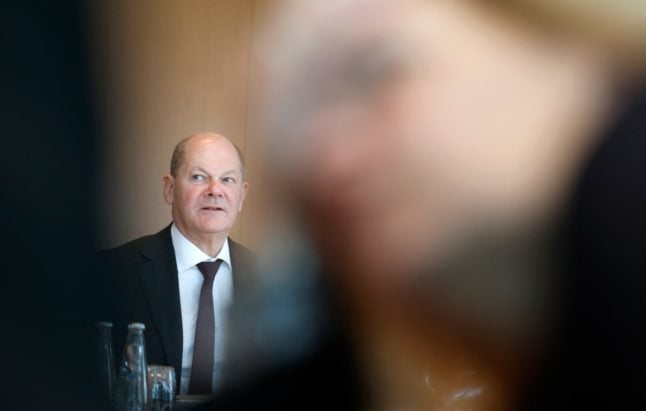Berlin has already delivered respirators to Ukraine and severely injured Ukrainian soldiers are currently being treated in Bundeswehr hospitals, the minister told Welt am Sonntag newspaper.
“In February, a complete field hospital will be handed over, including the necessary training, all co-financed by Germany with 5.3 million euros ($6.0 million),” Lambrecht said.
“We are standing on Kiev’s side. We must do everything to de-escalate the situation.
“Weapons deliveries would not be helpful at the moment — that is the consensus within the government,” she added.
Russia has massed tens of thousands of troops on the Ukrainian border, denying it plans to invade but demanding security guarantees, including a permanent ban on the country joining NATO.
Echoeing Western allies, Lambrecht said Moscow’s demand to decide which state joins NATO was a “red line” for the alliance.
“There is no Russian veto-right for membership to NATO. Every sovereign nation that shares our values is free to apply for membership. But beyond this red line, there is readiness from the West to speak with Russia and to take its interests into account,” she said.
Turning to Mali, another theatre of conflict involving Russia, Lambrecht said Moscow will not achieve its aims simply by deploying mercenaries to the West African countries.
Mali is the epicentre of a jihadist insurgency that began in the north of the country in 2012 and spread three years later to neighbouring Niger and Burkina Faso.
Germany has around a thousand troops stationed in Mali as part of the United Nations’ MINUSMA mission.
The West believes that several hundred Russian mercenaries from the Wagner group had been deployed in the centre and north of the country.
“Moscow will not succeed in getting the West to carry out a quasi retreat automatically wherever it doesn’t want to see us by sending mercenaries,” said Lambrecht.
“We will not give way, we will not make it that easy for the Russians.”
The Wagner Group has caused controversy through its involvement in Syria, Libya, the Central African Republic as well as the conflict in eastern Ukraine.
Russia denies any government link with the Wagner Group but the unit has been linked to Yevgeny Prigozhin, a businessman close to President Vladimir Putin.



 Please whitelist us to continue reading.
Please whitelist us to continue reading.
Germany blocking Estonia supplying weapons to Ukraine is clearly more help to Russia than Ukraine. There is no ‘neutral’ move in that context and consequently Germany at the very least should not obstruct the support other NATO countries are supplying.
Field hospitals treat the wounded of war, but don’t prevent the carnage of war.
The Ukraine army needs lethal weaponry to defend themselves, like anti-tank and anti-aircraft missile systems. Diplomacy has failed, and at this juncture, only a credible military deterrence can persuade Putin to rethink invading Ukraine should the cost be too high.
The Russian forces – incl tanks and planes – are very neatly lined up just 20 miles from Ukraine. If UK and a couple of others were to loan Ukraine one or two squadrons, a morning’s work would not see much left of the invasion force that’s worrying so many people. Russia seems to be taking for granted that Ukraine won’t take the fight to them. Could be a big mistake.